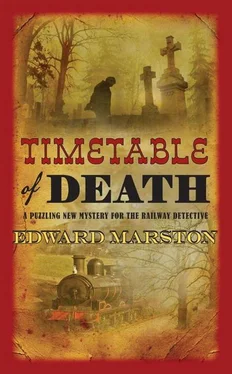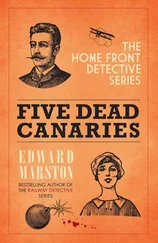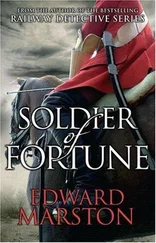Edward Marston - Timetable of Death
Здесь есть возможность читать онлайн «Edward Marston - Timetable of Death» весь текст электронной книги совершенно бесплатно (целиком полную версию без сокращений). В некоторых случаях можно слушать аудио, скачать через торрент в формате fb2 и присутствует краткое содержание. Год выпуска: 2015, ISBN: 2015, Издательство: ALLISON & BUSBY, Жанр: Исторический детектив, на английском языке. Описание произведения, (предисловие) а так же отзывы посетителей доступны на портале библиотеки ЛибКат.
- Название:Timetable of Death
- Автор:
- Издательство:ALLISON & BUSBY
- Жанр:
- Год:2015
- ISBN:9780749018122
- Рейтинг книги:4 / 5. Голосов: 1
-
Избранное:Добавить в избранное
- Отзывы:
-
Ваша оценка:
- 80
- 1
- 2
- 3
- 4
- 5
Timetable of Death: краткое содержание, описание и аннотация
Предлагаем к чтению аннотацию, описание, краткое содержание или предисловие (зависит от того, что написал сам автор книги «Timetable of Death»). Если вы не нашли необходимую информацию о книге — напишите в комментариях, мы постараемся отыскать её.
Timetable of Death — читать онлайн бесплатно полную книгу (весь текст) целиком
Ниже представлен текст книги, разбитый по страницам. Система сохранения места последней прочитанной страницы, позволяет с удобством читать онлайн бесплатно книгу «Timetable of Death», без необходимости каждый раз заново искать на чём Вы остановились. Поставьте закладку, и сможете в любой момент перейти на страницу, на которой закончили чтение.
Интервал:
Закладка:
Colbeck smiled disarmingly. ‘I had a feeling you’d say that, Superintendent. Tell me,’ he went on. ‘I recall your saying at one point that you had reservations about Mr Quayle. May I know what they were?’
‘One should never speak ill of the dead.’
‘That’s a pious platitude, in my view, and should be disregarded by anyone in our profession. The dead person in this instance is a murder victim and we need to be able to probe his vices as well as his virtues. Mr Haygarth has no problem in listing his rival’s shortcomings. Your perception of Mr Quayle, I suspect, may be different.’
Wigg was suspicious. ‘What’s behind this question?’
‘The simple desire to get as much information about the deceased as possible,’ replied Colbeck. ‘You didn’t like the man, did you?’
‘We had our differences.’
‘I fancy that it went deeper than that,’ said Colbeck.
‘Don’t listen to tittle-tattle, Inspector.’
‘My informant was that young reporter from the Derby Mercury and he’s no purveyor of tittle-tattle. Indeed you went out of your way to congratulate him on his work when he joined us at the hotel last night.’
‘What has Conway been telling you?’
‘I’d rather hear it from you, Superintendent.’
Wigg folded his arms. ‘If you have an accusation, make it.’
‘Very well,’ said Colbeck, meeting his gaze. ‘Before you joined the Derby Constabulary, you were a superintendent in the railway police here. Somewhere along the line, you fell foul of Mr Quayle and he had you dismissed. Is it true or false?’
‘It’s partially true,’ admitted the other.
‘What Mr Conway didn’t know was the nature of your crime, if that’s what it was. But he did point out that you joined the constabulary instead and rose quickly within the ranks to your present position. I admire you for doing that.’
‘The past is the past, Inspector. We’ve all made mistakes in our time. Mine was in falling out with a man in a position of authority. It wasn’t a “crime”. It was a misjudgement on my part. Even you must have made those.’ He gave a thin smile. ‘In fact, you might be making one at this very moment.’
‘That’s conceivable.’
‘Let’s leave the matter there, shall we?’
Colbeck agreed. He’d made Wigg aware that he knew about the animosity between the superintendent and Vivian Quayle and that it might have a bearing on the investigation. But he didn’t press the man too far. He needed to have firm evidence of Wigg’s involvement in the murder before he could do that.
‘You said that you were glad that I’d come.’
‘I am,’ said Wigg. ‘I have some news for you.’
‘What is it?’
‘The pathologist has consulted someone with more thorough knowledge of poisons and, as a result, he’s able to give us slightly more detail about what was injected into Mr Quayle.’
‘Excellent.’
‘He was killed by a compound of different poisons, some of which were detected at the post-mortem. One of them was not.’
‘What was it?’
‘See for yourself,’ said Wigg, picking up a sheet of paper from his desk and handing it over. ‘I don’t know much about chemicals.’
Colbeck read the name. ‘This one is likely to be very corrosive.’
‘I asked the pathologist how someone could get hold of it.’
‘What was his answer?’
‘He said that it’s sometimes found in powerful weedkillers.’
Colbeck thought about a garden shed in Melbourne Hall.
CHAPTER FIFTEEN
Weapon at the ready, Gerard Burns knelt motionless behind the bushes and waited for his moment. The bird circled, hovered for an instant then descended to the fence and scanned the ground below. Burns pulled the trigger and the crow was instantly blown off its perch by the shotgun blast. The gardener’s dog scampered out from its hiding place to retrieve the bird and bring it back to its master. Burns took it from the animal’s jaws and walked across to the shallow pit he’d already dug, tossing the lifeless body into it then using a boot to cover it with earth. He hated crows more than anything else and killed them whenever possible. The noise of the shotgun had made the other birds scatter in a crescendo of squawks and screeches so he was able to put the weapon aside and reach for his spade to fill in the grave properly.
One of the undergardeners came around the angle of the house.
‘What have you shot this time, Mr Burns?’
‘It was another crow.’
‘Wood pigeons are better. You can eat those.’
‘I’ll kill any pests I can.’
‘Slugs are the worst.’
‘There’s poison in the shed. Use it.’
‘Yes, Mr Burns.’
Recognising that the head gardener was in no mood for conversation, the other man went off to hoe some flower beds. Burns, meanwhile, went back to the shed with the spade and the shotgun. Ejecting the empty cartridge, he dropped it into the bin he kept for rubbish. Everything was in full bloom during the summer so there was a lot to do in the garden and he worked long hours to keep everything under control. However, his time was not entirely taken up with horticulture. Reaching behind some tarpaulin in the corner, he brought out a heavy object and tested it for balance. It was not ready yet, he decided. There was still plenty of work to do on it but Burns loved the feel of it in his hands. Stepping outside the shed, he tried a few practice strokes with his new cricket bat. He heaved a sigh, conscious that his days of real prominence on a cricket field were over. What he missed most was the applause for a ball well struck or for the latest wicket he’d taken. Burns was no longer the leading light of a county team. He was now condemned to take part in lesser contests where spectators were few and ovations non-existent.
The new bat was part of a dream. He played one final cover drive, saw an imaginary ball hurtling through the air like a bullet, then went back into the shed. It was time to return to reality.
The train journey to Duffield did not take very long. In earlier days, the village had stood in an area of scenic beauty at the lower end of the Pennines. Situated near the junction of two rivers, the Derwent and the Ecclesbourne, it was like many other Derbyshire villages, agricultural communities that had been transformed by the growth of industry and the development of the railways. When first opened in 1841, the railway station there was little more than a halt but it was now a solid permanent structure. Farm labourers existed in dwindling numbers in tied cottages and the new houses in the village had, in many cases, been built by the Midland Railway for its employees who travelled to the Derby Works each day by train.
Victor Leeming was not interested in the history of Duffield. His only concern was to follow Jed Hockaday in order to confirm the alibi that had been given to the detectives. When the train steamed into Duffield station, therefore, he stayed in his compartment until the other passengers had alighted. Only when the train was about to depart again did he leap out onto the platform and slam the door shut behind him. Leeming looked around to see in which direction his quarry had gone. Over a dozen people were in view but Hockaday was not among them. Leeming had the lurching sensation that he’d been tricked. It looked as if the cobbler had been aware that he was being followed and, instead of getting off at Duffield, had simply stayed on the train. There was a consolation. The sergeant had the names and addresses of two people with whom Hockaday claimed to have spent time on the night of the murder. More to the point, he would not have been able to reach them first in order to tell them what to say to the detective. The journey to Duffield was not in vain, after all.
Читать дальшеИнтервал:
Закладка:
Похожие книги на «Timetable of Death»
Представляем Вашему вниманию похожие книги на «Timetable of Death» списком для выбора. Мы отобрали схожую по названию и смыслу литературу в надежде предоставить читателям больше вариантов отыскать новые, интересные, ещё непрочитанные произведения.
Обсуждение, отзывы о книге «Timetable of Death» и просто собственные мнения читателей. Оставьте ваши комментарии, напишите, что Вы думаете о произведении, его смысле или главных героях. Укажите что конкретно понравилось, а что нет, и почему Вы так считаете.












